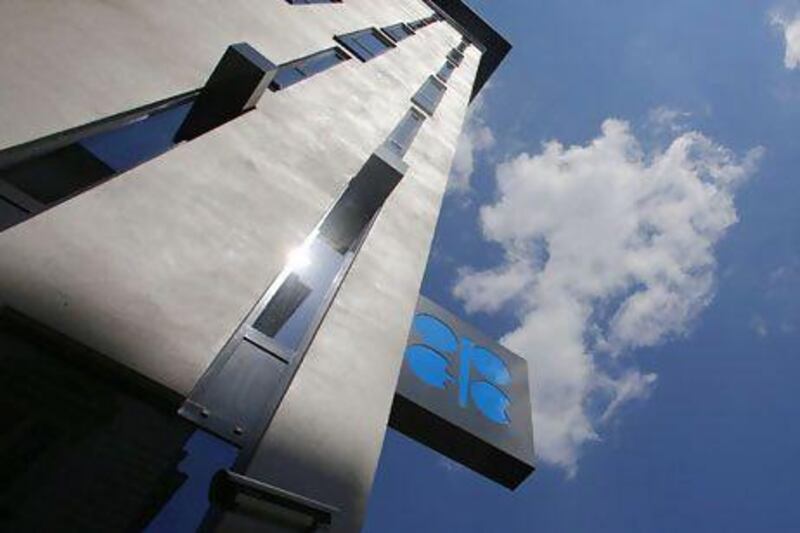Oil ministers gathering at Opec headquarters in Vienna today are likely to spend hours debating how to leave things as they are.
The UAE and Saudi Arabia, traditionally the leader in the 12-nation group, have signalled that today's steady prices of about US$100 a barrel are acceptable, and historically Opec makes changes to its production quota when prices drop.
Other decisions, such as selecting a new secretary general - a position held by Libya's Abdalla El Badri - that Saudi, Iranian and Iraqi candidates are vying for are so contentious they are likely to be left alone.
Setting individual production quotas, a factor in getting the group to stick to overall targets without relying exclusively on spare capacity powerhouse Saudi Arabia, is also a sensitive topic as Libya and Iraq race to raise their production from wartime lows and Iran remains under western sanctions.
"It looks like they're not going to make any output changes, I think they've got some internal organisational changes to make first," said Christopher Bellew, a senior broker at Jefferies Bache in London. "The fact that they're going into this meeting with Brent prices comfortably above $100 will make them satisfied and they won't be talking about increasing or decreasing."
Opec is pumping 400,000 barrels per day (bpd) above its official output target of 30 million bpd, "only a little above the organisation's target, and this reflects demand", Suhail Al Mazrouei, the UAE Minister of Energy, told Wam, the state news agency.
Today's prices of about $100 a barrel for Brent are "suitable and fair", he added, while global demand will remain "relatively weak" with an increase of 800,000 bpd over last year.
As Opec keeps its taps steady, that incremental increase is likely to be met by western producers.
Opec is in a quandary; on one hand, short-term budget needs fuelled by Arab Spring-triggered spending plans mean that Saudi Arabia and some other oil-producing nations cannot afford to have prices drop too far.
But those same prices are encouraging private oil companies to develop the challenging fields in the Arctic, subsalt reservoirs in Brazil and - the elephant in the room for Opec producers - North American shale.
Not only has the US managed to stage its biggest output increase since the dawn of oil exploration in the 1860s, but oil companies are hoping to replicate the phenomenon in China, Opec's biggest customer.
In the long term, Opec risks eroding its market share, traditionally about 40 per cent, by continuing to make the profit it does. Opec might act to curb prices in a few years should countries outside North America succeed with shale, said Mr Bellew.
"I feel confident output targets will remain unchanged as the only countries really who are concerned are Nigeria and Algeria who want oil prices to remain above $100," said Chris Faulkner, the chief executive of Breitling, an American energy company.
"The real question here is: with the US oil production surging and America on track to surpass Saudi Arabia in output by 2017, just how long will Opec be able to remain relevant when America is in the driver's seat? My guess: not long."





